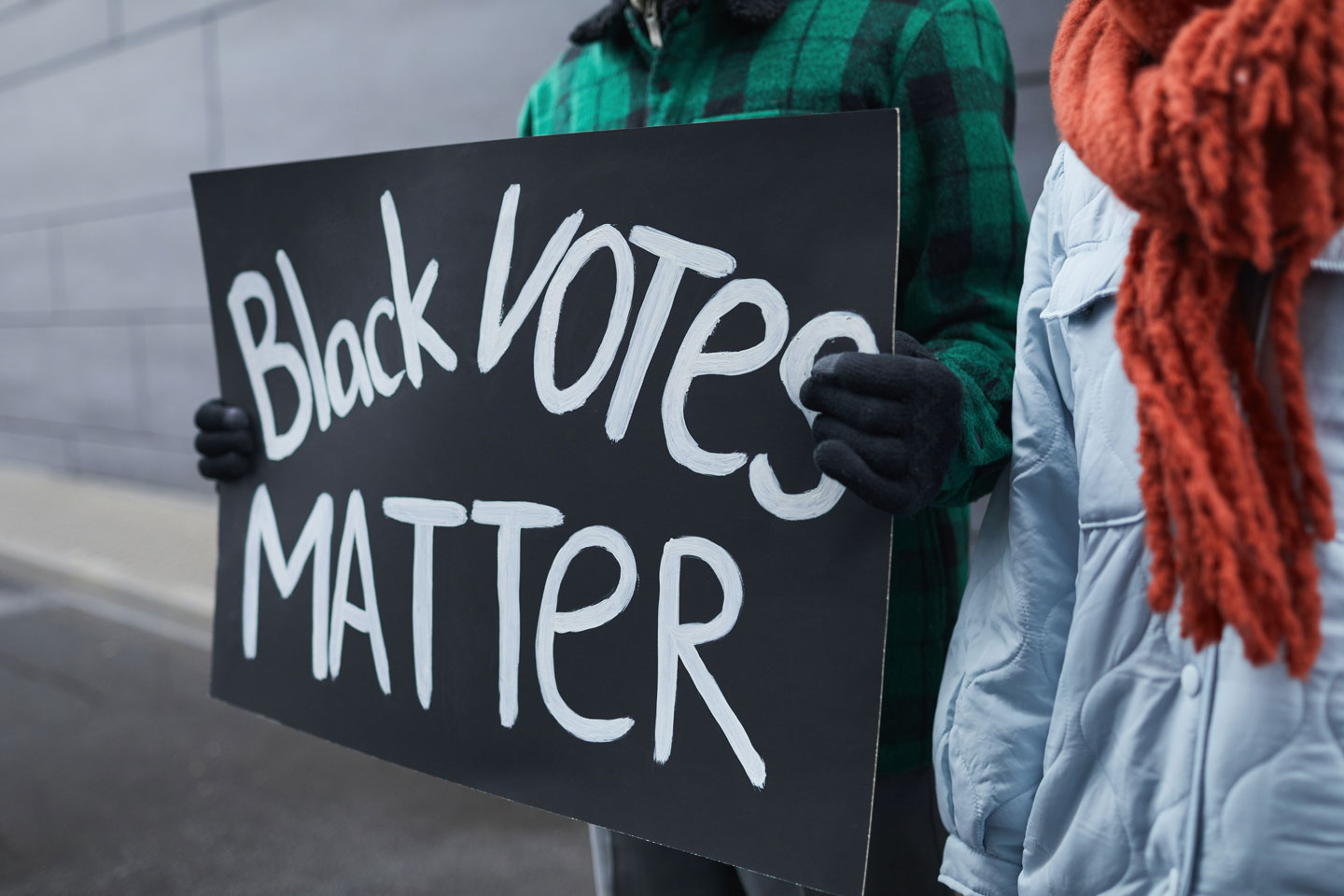Protecting the Sacred Right to Vote
By: Katie Adams, Domestic Policy Advocate for the UCC Washington D.C. Office

By: Katie Adams, Domestic Policy Advocate for the UCC Washington D.C. Office

January 20, 2022 Update:
We are profoundly disappointed the Senate did not pass the Freedom to Vote: John R Lewis Act; a transformational bill to make sure each person’s vote is unobstructed. Activists and advocates around the country have worked tirelessly to pass democracy protections because in order to do the work of building a world in which each person can thrive, we need to make sure each person’s voice and vote are honored. While the Senate failed today, we know this isn’t the work of a minute or an hour; it is ongoing and courageous work. Sometimes in the fog of acrimony and debate it is easy to fall into despair. But we are Easter people who believe in resurrection; those of us who mourn are offered beauty for ashes and gladness instead of mourning. Let us continue to do this work, glad for our faith that gives us hope and driven by our love for our neighbor.
– Katie Adams, Domestic Policy Advocate, UCC Washington DC Office
Find more reflections from our DC staff here.
_________________________________________________
Our democratic institutions are contingent on the idea that each person’s voice is represented by their vote. When people’s votes are suppressed or laws are passed to make it harder to vote, that, in turn, diminishes our democracy. We remember what Isaiah says, “Woe to those who make unjust laws, to those who issue oppressive decrees, to deprive the poor of their rights and withhold justice from the oppressed of my people…” As people of faith, we believe in honoring the voice and vote of every person and that free and fair access to the vote is a moral issue. We’re never going to be able to live up to our highest ideals as a country if we fail to build up robust voting protections. Protections that live up to the premise and promise that each person’s voice is sacred, and each person’s vote matters.
This week the Senate will once again try to move forward on passage of the John Lewis Voting Rights Advancement Act (JLVRAA) and Freedom to Vote Act. These bills work in concert to address the ongoing erosion of voting rights around the country. The JLVRAA takes steps to restore the Voting Rights Act of 1965, which was gutted by the Supreme Court in Shelby County v. Holder. By determining that states with a history of racist anti-voter laws no longer needed “pre-clearance” for changes to voting rights laws this case set into motion an avalanche of voter suppression legislation in states all across the country. The Shelby ruling widened the racial gap in voter participation because it has allowed states to pass racially discriminatory voting laws. Restoration of “pre-clearance” and Justice Department review will help prevent the future passage of discriminatory voting laws, similar to the ones being passed around the country right now.
The Freedom to Vote Act takes additional steps to make voting easier and more accessible by setting minimum accessibility standards for states and localities to meet like mail-in voting or making sure polling places are open and available to every resident. This would help combat the bills we’re seeing from states that restrict poll access, implement voter purges, and make the process of voter registration murky and difficult to do. The bill also builds up safeguards to end partisan gerrymandering and improves government ethics and accountability requirements. The bill recognizes and addresses the concept that big money has no place in politics and the Freedom to Vote Act puts the power back in the hands of the voters. These are common-sense reforms like making sure in every state there are basic voting access requirements to make it easier to register and cast a vote.
Even with all the mounting evidence about the importance of democracy protections and voter protections- there is an ongoing legislative battle in the Senate for passage. The current Senate rules require sixty votes for passage of legislation, a “supermajority.” These rules are preventing even consideration of the legislation. The next step in getting both the JVRAA passed and the Freedom to Vote Act passed must be an examination and change in the rules of the Senate to allow for the critical legislation to receive its day on the floor for consideration, debate and passage.
The right to vote represents a place in the community, a recognition of the inherent worth and dignity of every person. These bills represent a transformative moment in our democracy. The fulcrum of what democracy means in the country is contingent on bold action that protects each person’s sacred voice.
SHARE THIS NEWS ARTICLE
Sign up to receive alerts about new stories and resources. You’ll also enjoy our Join the Movement newsletter, featuring changemaker profiles, reflections on current events in the movement toward racial justice, and more. Get sneak previews and information about upcoming events, workshops and webinars.

